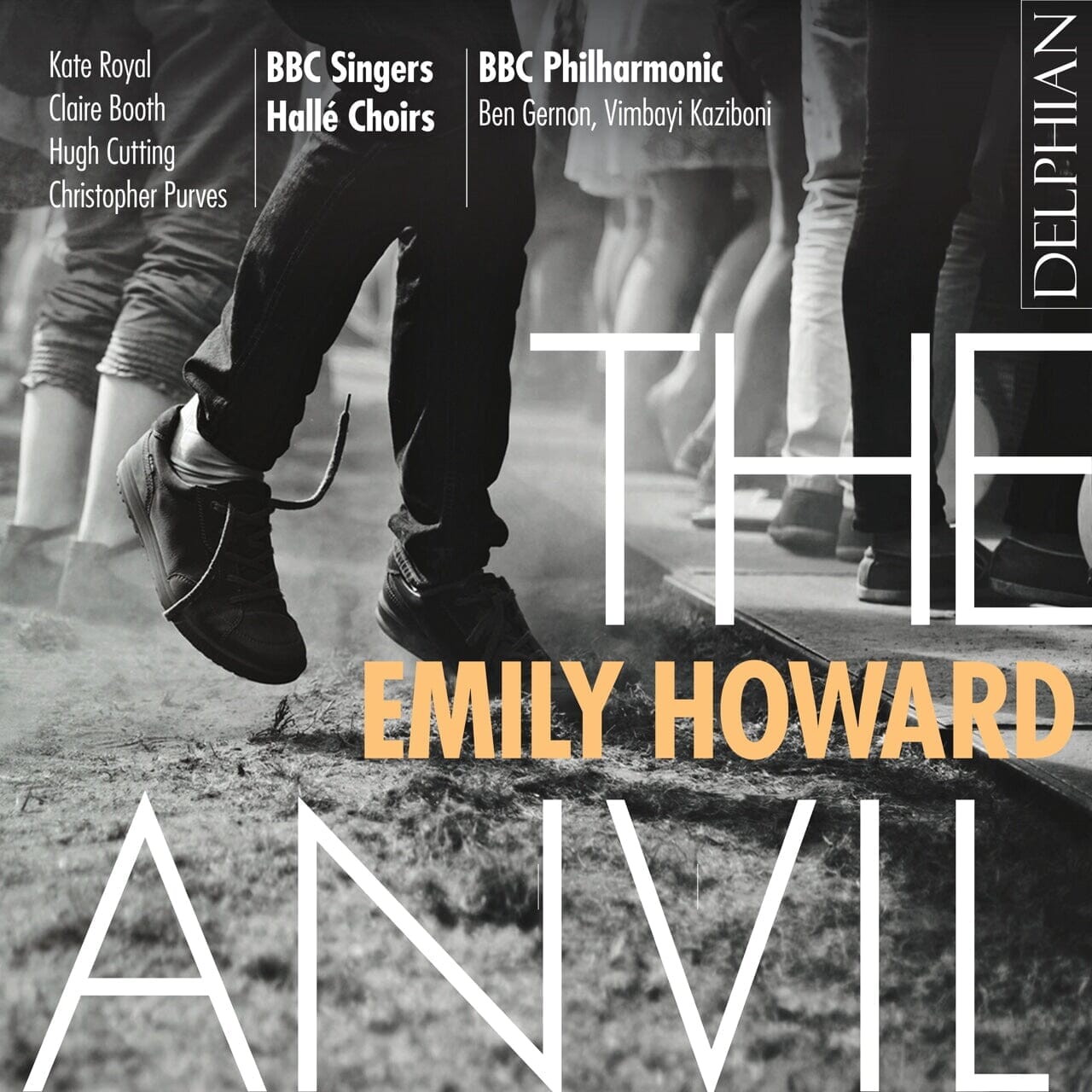Emily Howard: “The Anvil” and “Elliptics”
This disc really is a confluence of excellences

This is a fascinating release. Music lovers might be familiar with the Peterloo Massacre in Manchester in 1819 via Malcolm Arnold's Peterloo Overture, Op. 97 (1967): there is a good recording on Chandos of that, but the finest and most apt recording is that by the composer (with the City of Birmingham Symphony Orchestra on EMI). Also, Prommers might remember a fabulous performance by the BBC Philharmonic under Ben Gernon in 2019, too (a notable Prom as an indisposition introduced us last the talent of pianist Juan Pérez Florestán: see my review):
Emily Howard's piece The Anvil, written with poet Michael Symmons Roberts, was commissioned by BBC Radio 3 and the Manchester International Festival to mark the massacre's bicentenary. In 1819, not even 3% of the population were eligible to vote. The protest took place in St Peter's Fields. At least 18 people lost their lives (including women and children); nearly 700 were injured. The massage gained its name apparently due to the last words of a cotton-spinner from Oldham, John Lees, a veteran of the Napoleonic wars, who said that
Waterloo there was man-to-man, but at Manchester it was downright murder
Thereafter, the massacre became known as Peterloo.
The chorus in Emily Howards' memorable piece has a major role. The title is The Anvil, after the shape of the scrap ground where Peterloo took place. Using a textual grid “like the warp and weft of woven fabric” (in honour of the many weavers among those injured - the day of the massacre, Monday, was their day off). This was Howard's starting point. She uses a huge orchestra and chorus, and via microtones and dynamic extremes herself weaves a musical tapestry of immensely potent force. The combined BBC Singers and the Hallé Choir, the Hallé Youth Choir and the Hallé Ancoats Community Choir match the power of the huge orchestra. Howard depicts an industrial soundscape that goes crazy (the climactic “The Field Turns Inside Out”).
Here's an introduction to the piece, which includes a full explanation of how she and Roberts worked with that “grid”:
A solo soprano “narrates”: and.there is luxury casting here in Kate Royal, who is superb, not least in the sheer power of her utterances. Just as impressive is her co-soloist, Christopher Purves.
This is an immensely impressive piece. It is visceral in the sense of pure (often percussive) impact; it certainly packs a punch. It is also carefully constructed ("Weave"; "RISE"; The Order Comes"; "Some of Our Cry is Their Cry”) and beautiful scored., but most of all there is a consistent level of inspiration here.
Elliptics (2022) represents a second Howard/Symmons Roberts collaboration (strangely the piece is not mentioned at all on the disc cover) and features soprano Claire Booth and countertenor Hugh Cutting. It is perhaps important not to confuse Emily Howard's Elliptics with another new work: Dani Howard's Ellipsis ....
For Emily Howard's Elliptics, both composer and poet love the number eleven, and ended eleven forms the basis of th poem (there are eleven stanzas, for example). During the process of composition, the poet lost his mother, and in what was surely a process of catharsis, the poem became about life and death, and about loss. Another number that forms part of the piece is infinity, interpreted as the border between life and death and with the shape of the number (an "8" on its side) as part of the creative process for Howard, specifically how the first stanza strategically repeats. That numerological aspect is set up straight away, as the very first lines of the poem are:
Full-tilt towards infinity eleven hounds
track the earth's curvature
Here is the composer’s introduction:
This piece is radiantly beautiful, an appreciation of the beauty of passing as much as an acknowledgement of angst. Almost Wagnerian cadences work beautifully, while those moments of momentum (“Love alone brooks resurrection”) are powerful indeed. The final “Dusk that never blossoms, Endless vespers” for two voices in rhythmic unison is remarkable writing. And performed beautifully: the combination of Claire Booth and Hugh Cutting is perfect. Cutting is one of the finest countertenors active in the British Isles today; Claire Booth needs surely no introduction. That they present Howard”s score in such a perfectly calibrated performance, with the BBC Philharmonic once more on top form (this time under Zimbabwean-American conductor Vinboyi Kaziboni, a name new to me but one I hope to encounter again in short order) is luxury indeed.
This is powerful music, performed to the highest standard and presented in a fine recording. Bth performances, pristine as far as I can tell, are love from the Bridgewater Hall in Manchester. Each piece has a different producer (Tim Thorne and Matthew Bennett respectively) but there is one engineer throughout, Stephen Pinker. Laura Tunbridge is the fine annotator for Delphian. This disc really is a confluence of excellences.
I had come across Emily Howard's music before: her piece Outback on a Divine Art disc, A Garland for John McCabe (which I reviewed for Fanfare magazine). Mccabe himself featured a piece of Howard's, Sky and Water, in his farewell recital (preserved via Toccata Classics). As a bonus, here's Howard's 2019 piece Antisphere performed at the Barbican but he London Symphony Orchestra under Sir Simon Rattle (and if you click here, you will find Howard’s introduction to that piece):
This excellent disc is available for purchase at Amazon here
